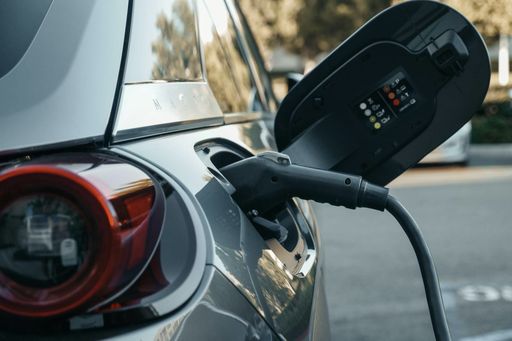Electric buses are sitting unused in cities across the US; here's why
Cities coast-to-coast grappling with broken-down e-buses that cannot be fixed

Cities Struggle with Broken-down Electric Buses
Thousands of electric buses were added to transit fleets across the US, thanks to investments from the federal government, states, and municipalities. However, many cities are now facing the issue of broken-down e-buses that cannot be fixed or are too expensive to repair. The situation has led to frustration among officials and a waste of taxpayer dollars.
In Asheville, North Carolina, three out of the five e-buses purchased in 2018 are now sitting idle due to software issues, mechanical problems, and a lack of replacement parts. Similarly, two out of four e-buses acquired by Colorado Springs' Mountain Metropolitan Transit are not running. These buses, costing $1.2 million each, were mostly paid for by government grants.
One of the main factors contributing to the problem is the bankruptcy of Proterra, the manufacturer of these e-buses. As the largest e-bus company in the US, Proterra represented nearly 40% of the market before filing for Chapter 11 bankruptcy in August.
Inability to Obtain Replacement Parts
The bankruptcy of Proterra has made it extremely difficult for cities to obtain replacement parts for their e-buses. Asheville's interim transportation director, Jessica Morriss, mentioned that it has been impossible to get parts since Proterra filed for bankruptcy. This issue is not unique to Asheville; other cities, including Philadelphia and Stockton, have also faced similar challenges in maintaining their Proterra e-buses.
The lack of availability of replacement parts has exacerbated the problem of broken-down e-buses, leaving these vehicles unused and causing financial losses for cities. Some cities have even paused their purchases of all-electric buses and are instead looking to add hybrid models to their fleets until EV technology improves.
However, there is hope for the future. Proterra's transit bus division was recently purchased by Phoenix Motorcars, a California-based manufacturer specializing in medium-duty electric vehicles. Phoenix Motorcars plans to focus on restocking spare parts and providing service technicians to get inoperable vehicles fixed. They aim to address the issues faced by customers within the next six to nine months.
Continued Evolution and Improvement of EV Technology
Despite the challenges faced by cities with e-buses, Phoenix Motorcars Chief Revenue Officer Jose Paul believes that EV technology will continue to evolve and improve. He compared the initial issues faced by EVs to the imperfectness of Henry Ford's Model T when it was first introduced. Paul emphasized that Proterra's buses have been improving with each generation.
Phoenix Motorcars aims to take care of every customer and address the issues caused by Proterra's bankruptcy. They have already made significant progress in the first eight days since acquiring Proterra's transit bus division. With the commitment of Proterra employees and their focus on customer satisfaction, Phoenix Motorcars hopes to resolve many of the problems within the next six to nine months.
In the meantime, cities affected by broken-down e-buses are exploring alternative options such as hybrid models. This allows them to continue their efforts in reducing carbon emissions while waiting for improvements in EV technology and the availability of replacement parts.


